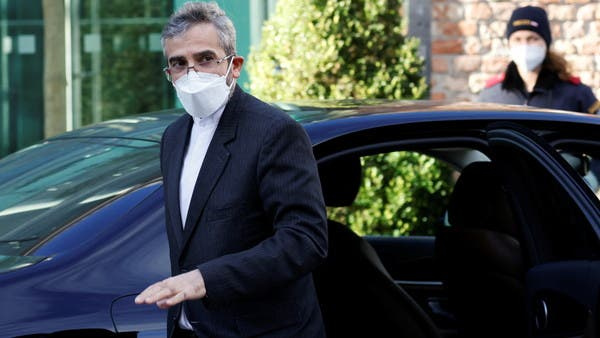The Limits of Realism in Iran's Foreign Policy

By all indications, Iran's foreign policy behavior is by and large informed, and one might say consumed, by an underlying theoretical approach known as classical realism in international relations. According to this school of thought, Iran should dispense with the nuanced approach of the previous administration and adhere to a more straightforward orientation based on realpolitik, whereby the coercive actions of the US and other western powers are met by Iran's resolute reactions, typified in Iran's immediate response to the recent seizure of its oil tanker by US-Greek governments, as well as by Iran's hardline approach in the stalemated nuclear negotiations, not to mention a whole host of other regional actions-reactions. The nub of Iran's new foreign policy realism is that the other side understands only the language of power, particularly hard power, and therefore must be responded in kind.
Unfortunately, despite the appearances to the contrary, this is a simplistic recipe for foreign policy that simplifies the current complexities of Iran's foreign policy environment and the policy demands thereto, resulting in predictable setbacks, instead of any meaningful tangible gains. On the one hand, this raises the issue of too close a proximity between theory and practice, which must be mediated instead of the latter issuing forth directly from the former and, on the other hand, is connected to the role of foreign policy forecasting and threat analysis, which is germane to any sophisticated foreign policy decision.
A clue to the inapt comparison with the past, the Rouhani administration also faced similar tanker seizures and resorted to 'tit-for-tat' responses that, in the British case, paid off and showed the importance of reliance on a politics of counter-leverage. That administration also relied on soft power diplomacy, which in 2016 was responsible for the quick resolution of the standoff with US navy over its sailors, who were released due in part to good chemistry between US Secretary of State John Kerry and Iran's foreign minister Javad Zarif. Sadly, no such linkages between US and Iranian diplomats exists today, harming the interests of both sides, who have a great deal of common interests, e.g., with respect to regional stability and energy security, narco-traffic, and the like.
Yet, such shared US-Iran interests are overshadowed by the clashing interests, which are either avoidable or manageable through prudent mutual diplomacy. Certainly, the Biden administration, which pledged to break from Trump's Iran policy, has lagged behind its promises and must resort to a more proactive Iran diplomacy, instead of continuing Trump's confrontational Iran policy. But, it takes two to tango and for its part Iran must also adjust its foreign policy, in order to de-escalate tensions with US and its allies, otherwise these tensions may soon engulf the whole region, at a time when the world can ill-afford yet another major international crisis.
As predicted by this author in an earlier article in IRDIPLOMACY, on the perils of Iran's hardline nuclear diplomacy, in the absence of sufficient Iranian flexibility and compromise, there was little chance of witnessing a breakthrough in the (now) stalemated nuclear talks. Although there is a legitimacy to Iran's complaint that the US has not responded to its two packages of proposals, still by the wealth of Iran's official and semi-official announcements and the like it is fairly easy to infer the absence of a nuanced nuclear diplomacy that could yield positive results. Consequently, in light of the latest anti-Iran initiatives at the IAEA, we can safely assume that the re-introduction of UN resolutions on Iran is likely and on the horizon, representing a major new challenge to Iran. In other words, despite all the reassuring words of Iran's negotiators over the past several months, the JCPOA is not on the verge of being re-adopted and, on the contrary, is on its last legs; the blame game can go on ad infinitum, but for Iran what matters is the tangible result and not who scores higher in the blame department.
One potential solution for the present slippery slope of nuclear diplomacy is a unilateral Iranian return to JCPOA, putting the US on the defensive. Thus, instead of decreasing Iranian cooperation with the IAEA, there would be increased cooperation and practically no attempt to resort to a nuclear politics of leverage. Theoretically, this can be justified through the prism of a critical constructivist approach that emphasizes Iran's traditional counter-proliferation identity, reflected in the Supreme Leader's edict, as well as the broader post-revolutionary norms that transcend limited realism. Far from naive and simplistic, this approach is in tune with the dynamic of international order that militates against rogue behavior, seen by Russian aggression in Ukraine nowadays, bound to generate a great deal of pro-Iran sympathies. Iran's full compliance with the JCPOA is in Iran's national interests and dictates a reconsideration of the ill-advised radical policies of the present administration that are entirely one-dimensional. In the absence of such necessary policy adjustments, the outside fear of a nuclearizing Iran will inevitably translate into greater pressures on Iran at a time when Russia's actions in Ukraine have weakened Iran's external support. As a result, chances of foreign attacks on Iran's nuclear facilities exist more than ever before, which cannot be ignored or simply responded by threat of counter-force. Rather, the whole situation demands a more nuanced foreign policy based on the principles of 'heroic flexibility' and rapprochement with the West, as well as a great deal less reliance on defunct approaches in international relations -- that in essence hamper rather than aid foreign policy-making.

